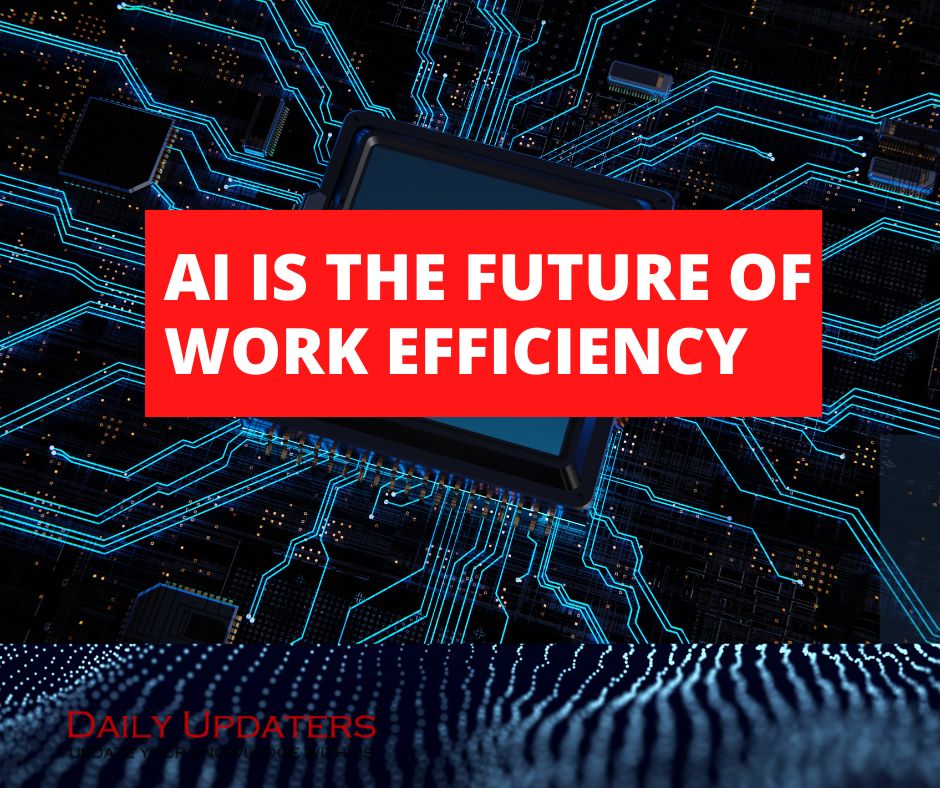The modern workplace is in a state of rapid transformation, with businesses continually seeking ways to streamline operations and maximize productivity. Artificial intelligence (AI) has emerged as a groundbreaking solution to many challenges, offering the potential to revolutionize how work gets done. By automating repetitive tasks, enhancing decision-making, and fostering innovation, AI is becoming an essential tool for improving efficiency across industries.
How AI is Transforming Efficiency in the Workplace
AI’s ability to analyze, learn from, and act on large amounts of data enables it to tackle problems and deliver results at a speed and scale far beyond human capabilities. Its applications span every aspect of work, from automation to personalized solutions, driving significant improvements in how tasks are performed.
1. Automating Repetitive Work
AI technologies excel in handling time-consuming and repetitive tasks, allowing employees to focus on more strategic and creative activities. Examples include:
- Data Processing: Automated systems streamline data entry, organization, and analysis, minimizing errors and increasing accuracy.
- Customer Support: AI-driven chatbots address routine inquiries instantly, reserving human agents for more complex customer needs.
- Task Scheduling: Intelligent assistants manage calendars, reminders, and scheduling conflicts, ensuring efficient time use.
By relieving workers of monotonous tasks, AI allows them to dedicate their energy to innovation and problem-solving.
2. Supporting Smarter Decisions
One of AI’s strongest capabilities is its ability to process vast datasets and extract actionable insights. Organizations leverage AI to:
- Identify emerging market trends and opportunities.
- Predict maintenance needs for equipment to reduce operational disruptions.
- Optimize supply chains with data-driven planning.
With AI-enhanced insights, leaders can make well-informed decisions that drive better outcomes.
3. Facilitating Collaboration
AI tools are redefining how teams work together by improving communication and coordination. These tools can:
- Break down language barriers through real-time translations.
- Summarize key points from meetings or emails, ensuring alignment across teams.
- Analyze team interactions to recommend better collaboration practices.
Such innovations create more cohesive and productive work environments, regardless of geographical or cultural differences.
4. Tailoring Learning and Development
As job requirements evolve, staying updated with new skills is vital. AI-powered learning systems deliver personalized training by:
- Identifying skill gaps based on employee performance.
- Recommending customized learning paths to address those gaps.
- Offering real-time feedback through interactive platforms.
This adaptive approach ensures that workers remain competent and prepared for future challenges.
The Human-AI Symbiosis
AI isn’t about replacing human workers—it’s about empowering them. By automating routine tasks and delivering data-driven insights, AI allows employees to focus on areas where human creativity, critical thinking, and empathy are essential. This partnership creates a dynamic where both humans and machines work together to achieve greater efficiency and innovation.
Addressing Challenges
The integration of AI is not without obstacles. Companies must navigate ethical considerations, such as data privacy and algorithm fairness. Additionally, equipping employees with the skills to work alongside AI is crucial. Investing in training programs and adopting ethical AI practices will ensure a smoother transition.
Looking Ahead
The future of work is being shaped by AI, with its potential to transform productivity and redefine job roles. Businesses that embrace AI will not only stay competitive but also lead the way in creating smarter, more efficient workplaces. For employees, AI represents an opportunity to offload mundane tasks, focus on meaningful work, and thrive in an evolving job landscape.
AI’s impact on work efficiency is undeniable. As organizations harness its power, they unlock new levels of productivity and innovation, paving the way for a future where work is not just faster but smarter. Embracing AI is not merely an option—it is a necessity for anyone looking to succeed in the modern workforce.



